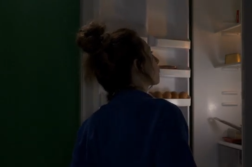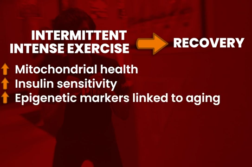SAN DIEGO, Calif. (Ivanhoe Newswire) – Rare cancers are considered cancers that affect fewer than 40,000 people per year. But when you put them all together, they make up more than a quarter of all cancers. Unfortunately, the more people who have a disease, the more money is used to research it and develop new treatments and drugs. So, when a new drug is approved for a rare cancer, it seems as rare as the cancer it aims to treat. Now, there’s new hope for thousands of people who are fighting a rare, but life-altering cancer. Urinary Tract Cancer
Urothelial cancer is the tenth most commonly diagnosed cancer in the world, but LG UTUC, or low-grade upper tract urothelial cancer, is a rare variant of it, with just 8,000 people diagnosed in the U.S. each year. LG UTUC are tumors in the tube that connects the kidney and the bladder.
Urologic oncologist, UC San Diego Health, Amirali Salmasi, MD explains, “These people, they lose their kidneys and, or the part of the ureters.”
But now, the FDA has approved the first and only non-surgical option for patients – a new drug that can hopefully delay the progression of the disease and avoid removing the kidney, called Jelmyto. It utilizes a unique hydrogel technology to deliver mitomycin – a chemo medication – directly to the tumor site in the urinary tract, minimizing exposure to other organs and potential side effects.
“When it is in the cold, it’s like liquid. When we put in the body temperature, it forms like a gel,” Dr. Salmasi adds.
A phase three clinical trial resulted in 50 percent of patients with LG UTUC having complete resolution of their disease for at least one year.
Dr. Salmasi says proudly, “I think it changed the, you know, field significantly.”
Bladder and urothelial cancers have a high mortality rate as treatment options have not improved in recent years. Experts believe one of the most important reasons why is lack of funding for research – cancers of the bladder receive $20 million, compared to breast cancer which receives $600 million a year.
Contributors to this news report include: Marsha Lewis, Producer; Matt Goldschmidt, Videographer; Roque Correa, Editor.
To receive a free weekly e-mail on medical breakthroughs from Ivanhoe, sign up at: http://www.ivanhoe.com/ftk
Sources:
MEDICAL BREAKTHROUGHS
RESEARCH SUMMARY
TITLE: NON-SURGICAL BREAKTHROUGH FOR RARE URINARY TRACT CANCER
REPORT: MB #5322
BACKGROUND: Urothelial cancer, also known as transitional cell carcinoma, is a type of cancer that primarily affects the urothelial cells lining the urinary tract. The urinary tract includes the kidneys, ureters, bladder, and urethra. Urothelial cancer can occur in different parts of the urinary system, and its most common manifestation is bladder cancer. Urothelial cancer is responsible for 90 percent of all bladder cancer and seven percent of all kidney cancer. There are two types of this disease: high-grade urothelial cancer and low-grade urothelial cancer. Men are four times more likely to develop bladder cancer that was caused by urothelial carcinoma, and twice as likely to develop kidney cancer from it.
(Sources: https://www.cancer.org/cancer/types/bladder-cancer/about/what-is-bladder-cancer.html
DIAGNOSING: The first telltale sign of urothelial carcinoma is blood in the urine, but other symptoms include, but are not limited to: persistent back pain, tiredness, unexplained weight loss, painful urination, a lump or mass in kidney area, and/or a low-grade fever. Doctors are able to diagnose urothelial carcinoma with a plethora of tests, including: urinalysis, urine cytology, intravenous pyelogram, ureteroscopy, CT scans, ultrasounds, and/or MRIs. Urothelial carcinoma can be caused by cigarette smoking or by being exposed to certain chemicals in dyes, rubber, leather, paint, textiles, or hairdressing supplies.
(Sources: https://my.clevelandclinic.org/health/diseases/6239-transitional-cell-cancer#symptoms-and-causes
https://my.clevelandclinic.org/health/diseases/6239-transitional-cell-cancer#diagnosis-and-tests)
NEW TECHNOLOGY: Jelmyto is the newest drug on the block, treating LG-UTUC, or low-grade upper tract urothelial cancer/carcinoma. According to Amirali Salmasi, MD, Urologic Oncologist at UC San Diego Health, “Jelmyto utilizes a unique hydrogel technology to deliver mitomycin, a chemo medication, directly to the tumor site in the urinary tract. This targeted approach allows for sustained drug release, maximizing the effectiveness of the treatment while minimizing exposure to other organs and potential side effects.”
(Source: Amirali Salmasi, MD, Urologic Oncologist at UC San Diego Health)
FOR MORE INFORMATION ON THIS REPORT, PLEASE CONTACT:
Annie Pierce Leslie Aquinde
arpierce@health.ucsd.edu ljaquinde@health.ucsd.edu
If this story or any other Ivanhoe story has impacted your life or prompted you or someone you know to seek or change treatments, please let us know by contacting Marjorie Bekaert Thomas at mthomas@ivanhoe.com




